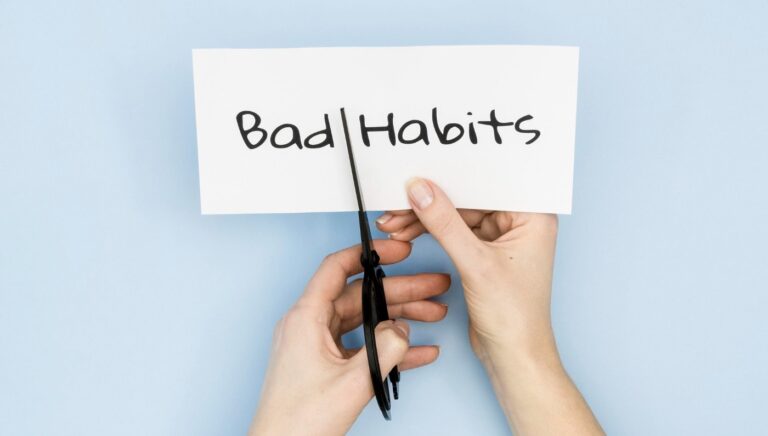
From the moment we wake up in the morning and up to the time we go to bed at night, our day-to-day is largely shaped by our habits. Small things like brushing your teeth, washing your hands before you eat and saying please and thank you are good habits that impact our days in positive ways.
Bad habits, however, can turn a good day into a bad one or make a bad day worse. Staying up late at night, biting your fingernails, or spending too much time on mobile devices can have negative effects on our energy, appearance, and focus. Fortunately, there are simple steps we can take to effectively stop bad habits from taking control of our lives.
1. Identify Bad Habits
How do we determine which habits are having negative effects on our day-to-day lives? There are key factors to consider to help us identify those bad habits that we need to eliminate from our daily routines. While good personal habits can bring forth positives to assist with managing your days and activities smoothly, bad habits will consequently result in losses that can complicate ordinary situations and tasks.
Learn to identify your bad habits based on the immediate impact on your:
- Health and appearance
- Free time
- Productivity
Constantly staying up late and missing out on valuable hours of sleep can make you feel groggy and appear tired. Regardless of how many cups of coffee you drink the following day, your productivity at work will also suffer from a lack of focus.
2. Plan Ahead
Create a plan of action against your bad habits now that you have identified which ones are negatively affecting you. Set small goals for yourself to improve on and work your way up as you progress. Monitor your development continuously and adapt helpful positive changes into your routine.
Organize your tasks by setting start and end times for each activity such as your bedtime. Prioritize your daily activities and reduce the amount of time spent on those that take away from your free time. Feel free to make adjustments as frequently as needed to improve your plan of action.
3. Improvement and Repetition
Through the constant process of elimination, you will quickly start to replace the old bad habits with new positive ones. When you find a plan that improves your overall health and well-being, stick to it. Soon, those bad, unproductive habits will be left behind as a result of consistent improvement.
Old habits die hard without corrective action but making simple adjustments can help put a stop to those bad habits fast. Learning to identify, plan against and improve upon those bad habits can create significant improvements to our day-to-day lives as well as our overall well-being.